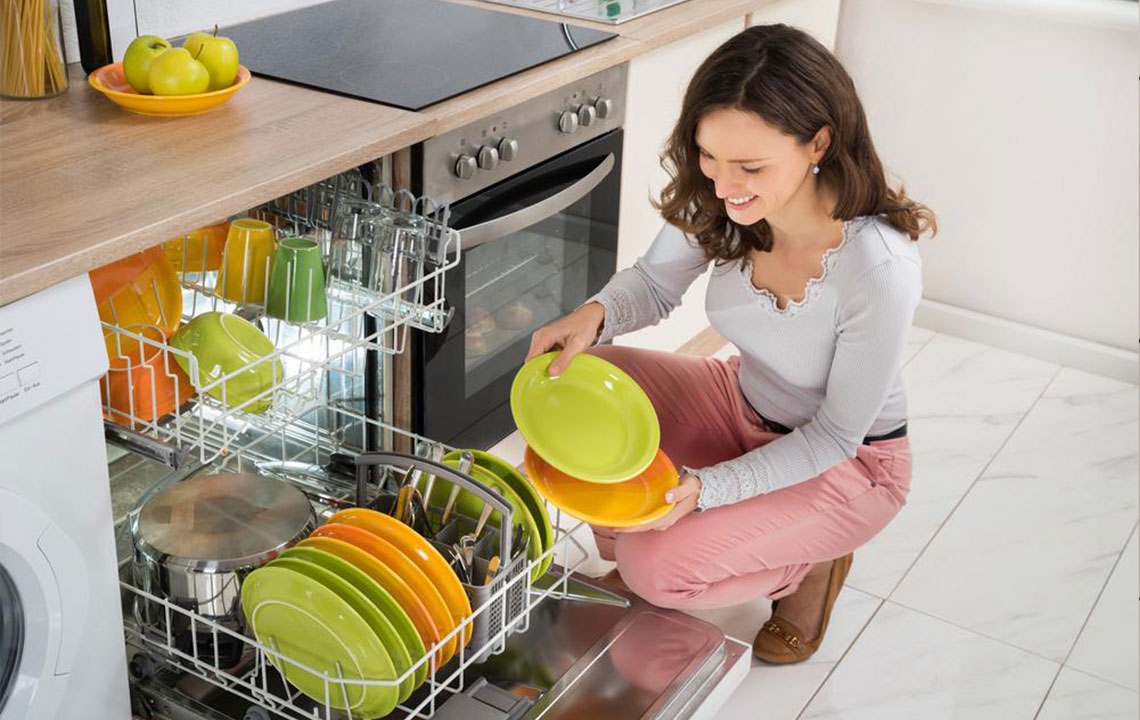Essential Tips for Choosing the Perfect Dishwasher for Your Home
Choosing the right dishwasher requires careful assessment of capacity, budget, noise levels, and features. This comprehensive guide helps homeowners select models that suit their household needs and budget, ensuring efficient cleaning and energy savings. Learn about key considerations like size options, price ranges, operational noise, innovative functionalities, and more to make an informed purchase that enhances your kitchen experience.

Essential Tips for Choosing the Perfect Dishwasher for Your Home
In today's modern kitchens, dishwashers have become indispensable appliances that significantly simplify daily chores. Whether you're upgrading an outdated unit or purchasing your first dishwasher, selecting the right model can be a daunting task due to the plethora of options available. From various brands and styles to advanced functionalities and varying price points, making an informed choice requires careful consideration.
Understanding the key factors that influence the performance, efficiency, and suitability of a dishwasher will help you find a model that meets your specific household needs while offering excellent value. This comprehensive guide covers the critical aspects to consider, from capacity and budget to noise levels and special features, empowering you to make a confident decision.
Assessing Capacity Based on Household Size
The first step in selecting the ideal dishwasher is evaluating your household’s size and typical dishwashing volume. Dishwashers come in various sizes, primarily 18-inch compact models and full-sized 24-inch units, each catering to different needs.
For singles, couples, or homes with occasional dishwashing needs, a compact dishwasher with 6-8 place settings is usually sufficient. These models are energy-efficient, save space, and are perfect for small kitchens with limited room. Conversely, larger families or households with frequent entertaining will benefit from a standard 24-inch dishwasher that comfortably handles 12-14 place settings per cycle, effectively managing higher loads without sacrificing cleaning quality.
Beyond size, consider the typical load you generate daily to ensure your chosen model has enough capacity to avoid constant running or overflowing. Moreover, some modern dishwashers offer adjustable racks and flexible interior layouts, which can further optimize space utilization for different types of utensils and cookware.
Pricing Considerations and Budget Planning
Dishwasher prices fluctuate widely based on brand reputation, features, size, and technological advancements. Basic models with essential functionalities can start as low as $500, making them accessible for most budgets. These models are generally reliable and suitable for straightforward cleaning needs.
However, for those seeking enhanced performance, energy efficiency, and advanced features, investing a bit more is advisable. Higher-end models often include extra cycles, innovative cleaning technologies, quieter operation, and smart connectivity options, which can justify increased costs. Setting a clear budget before shopping helps to narrow down options and prevents overspending, ensuring you select a model that balances price and performance effectively.
Always consider the long-term savings gained from energy-efficient models that consume less water and electricity, potentially offsetting a higher initial investment through reduced utility bills over time.
Operational Noise Levels and Comfort
Modern dishwashers are designed to operate discreetly, minimizing disruption in your home environment. Noise level is a crucial factor, especially for open-plan kitchens or apartments where sound can easily travel. To evaluate how loud a dishwasher is, check its decibel (dB) rating. Typically, quieter models emit sounds around 30 dB, comparable to a whisper, making them virtually inaudible during operation. Models around 50 dB produce noise similar to normal conversation and may be suitable for less sensitive environments.
Opting for a quieter dishwasher enhances household comfort, particularly if you run dishwashers during nighttime or when entertaining guests. Be aware that ultra-quiet models tend to have higher price tags, but the increased comfort can justify the cost for many households.
Key Features and Functionalities
Enhancing your dishwasher experience hinges on selecting the right features that match your cleaning needs and lifestyle. Some of the most beneficial features include:
Varied Wash Cycles: Entry-level dishwashers typically offer basic cycles like normal and quick wash. For more demanding cleaning, look for models with heavy-duty, sanitize, or intensive cycles to effectively clean heavily soiled pots, pans, and stubborn stains.
Soil Sensors: Modern dishwashers equipped with soil sensors can detect how dirty the dishes are and adjust water temperature, cycle duration, and water volume accordingly. This not only improves cleaning results but also enhances energy and water efficiency.
Additional Racks and Flexibility: Many models now feature adjustable or removable racks, foldable tines, and specialized compartments for utensils, glasses, and larger cookware. These features provide versatility, accommodating various dish sizes and shapes for a thorough clean.
Other useful features include ENERGY STAR certification for energy savings, delay start timers for scheduling cycles during off-peak hours, and sensors that detect leaks or performance issues. Carefully choosing the right combination of features ensures your dishwasher meets your specific cleaning requirements while maintaining efficiency and convenience.
In conclusion, selecting the right dishwasher involves a balanced consideration of size, budget, noise levels, and features. By understanding these key factors, you can choose a model that offers optimal cleaning performance, energy efficiency, and long-term value, ultimately making your kitchen chores easier and more efficient.





